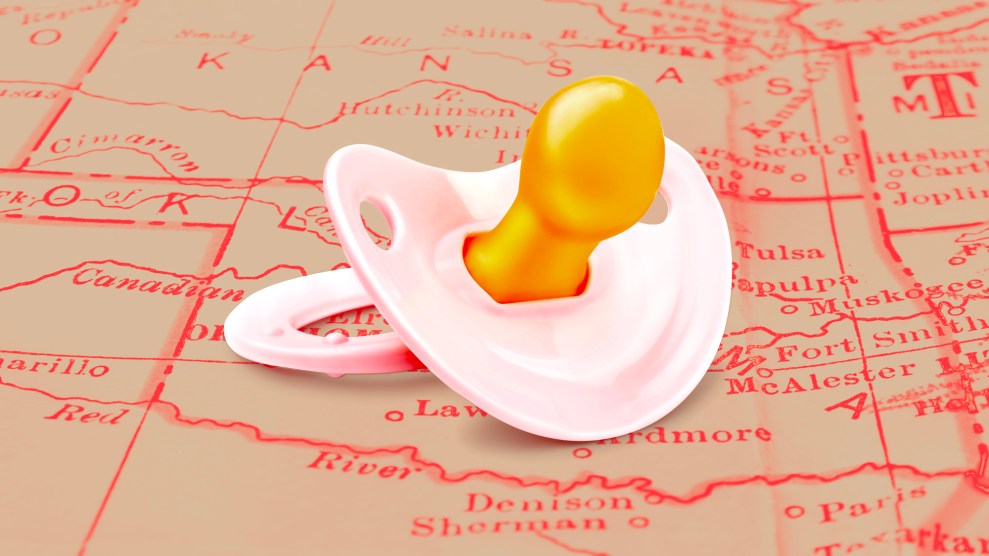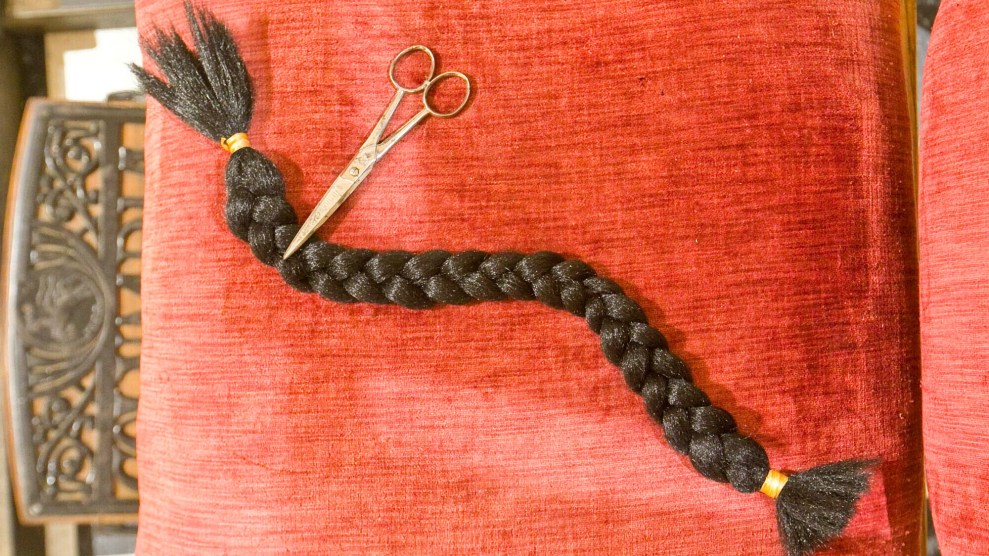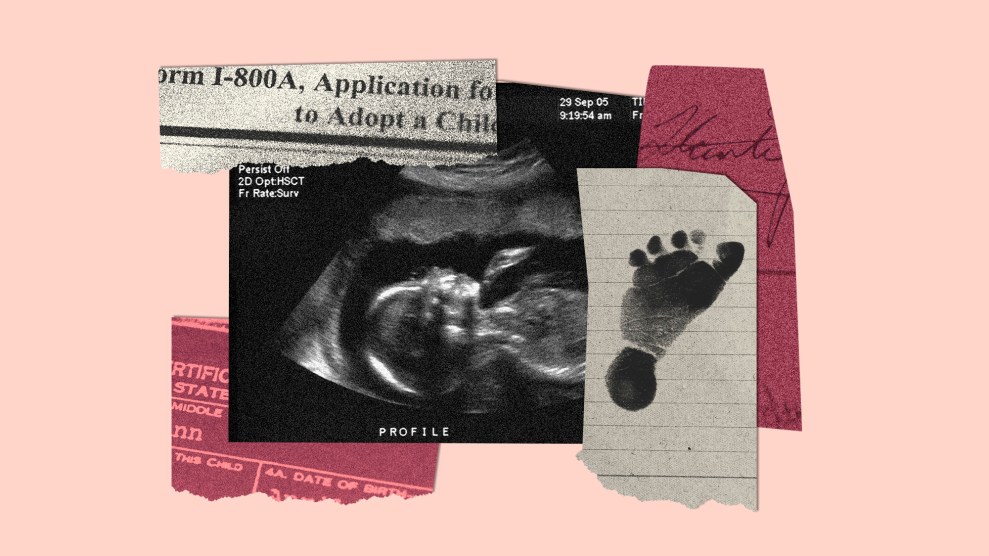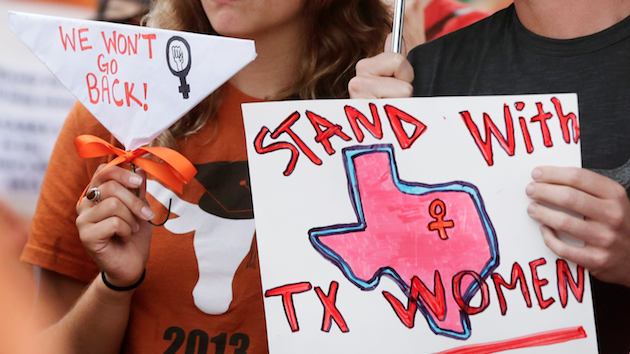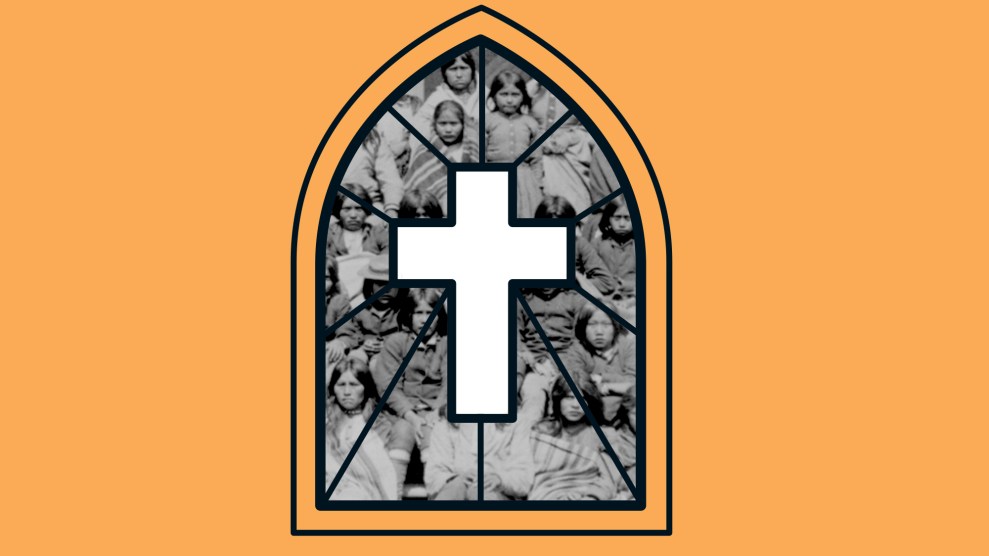
Mother Jones; Getty; Library of Congress
Editor’s note: This short piece accompanied “Forever Home” in the March+April 2023 print edition of Mother Jones.
This spring, the US Supreme Court will hear a case that could decide the future of the Indian Child Welfare Act, the 1978 landmark law that strengthened tribes’ rights to keep Native children out of the foster care system. At the center of the current case are the Brackeens, a white Texas couple hoping to adopt a 4-year-old girl from a Navajo family. Devout Christians, the Brackeens have said that they felt called by God to adopt, telling the New York Times in 2019 that they considered adoption a way to “rectify our blessings.”
Christian groups have jumped to the Brackeens’ defense, arguing that ICWA discriminates against Native children by prioritizing potential caretakers’ Native heritage over their overall ability to provide for a child. Yet critics see that argument as merely the latest chapter in Christians’ long history of removing Native children from their communities to win more converts—a kind of a modern spin on the famous words of Richard H. Pratt, the Christian founder of the first residential school for Native children in the United States. “All the Indian there is in the race should be dead,” he wrote in 1892. “Kill the Indian in him, and save the man.”
Christian Alliance for Indian Child Welfare
Founded in 2004, this group advocates on behalf of non-Indian families who are trying to adopt children of Native descent. The group’s founder is Elizabeth Morris, author of a 2006 book called Dying in Indian Country, which she describes as “the true story of a father who realized reservation life and welfare policies were destroying his family.” In an amicus brief filed in 2021, an anti-ICWA group called the Christian Alliance for Indian Child Welfare wrote, “For nearly fifty years, ICWA has imposed race-based classifications on Indian children and their families—a clear violation of Equal Protection—and has caused horrendous individual suffering as a result.” CAICW’s public Facebook page, with 2,700 followers, regularly shares stories about what they see as the depravities of Native culture; a recent post cast doubt on recent finding of remains of Native children on the grounds of Canadian boarding schools despite abundant evidence that they are legitimate.
Nightlight Christian Adoptions
Since 1959, this evangelical adoption agency has advocated for adoption as an alternative to abortion and a boon to Christianity. Nightlight waded into an ICWA battle in 2013, when the agency facilitated the adoption of a Cherokee girl into a White Christian family. After a highly publicized custody battle between the adoptive parents and tribal leaders ensued, with evangelical activists staging rallies and circulating petitions to “Save Baby Veronica” from being removed from her Christian adoptive family. The Supreme Court ultimately ruled in the adoptive parents’ favor. In a current brochure about its faith-based mission, Nightlight states, “Adoption is one of the most effective ways to make disciples of all nations.”
Allie Beth Stuckey and Naomi Schaefer Riley
Stuckey, a Christian influencer with 441,000 followers on Instagram, devoted a recent episode of her podcast, “Relatable,” to the Indian Child Welfare Act. Her guest was Naomi Schaefer Riley, a fellow of the libertarian think tank American Enterprise Institute and author of the and the 2016 book The New Trail of Tears: How Washington Is Destroying American Indians. On Stuckey’s podcast, Riley argued that the US government’s history of abuse and exploitation of Native people is no longer relevant. “I don’t really believe in historical trauma,” she said. Instead, she blamed Natives’ poverty and suffering on modern moral failings. “Maybe it’s the substance abuse,” she said. “Maybe it’s the high crime rates. Maybe it has nothing to do with the fact that your grandfather was forced to go to a boarding school by the American government.” She claims that what “left-wing activists” really hope to achieve is “an Indian Child Welfare Act for Black children.”
That wasn’t Riley’s first appearance on Stuckey’s podcast; in an episode from last year called “CPS Has A Deadly Wokeness Problem” Riley discussed her most recent book, No Way to Treat a Child: How the Foster Care System, Family Courts, and Racial Activists Are Wrecking Young Lives, published in 2021. Riley held forth about her belief that law-and-order conservatives should think of child protective services as a branch of law enforcement. She told Stuckey, “We don’t think it’s a good idea as conservatives to abolish the police because we understand…the important role the police play in protecting our most vulnerable citizens, and we need to understand the important role that CPS plays in protecting children.” Stuckey urges her listeners to reject the notion that race and culture should play a role in custody decisions. “The world doesn’t care about children,” she says. Her listeners can help, she says, by “carrying on the legacy of Christianity.”

